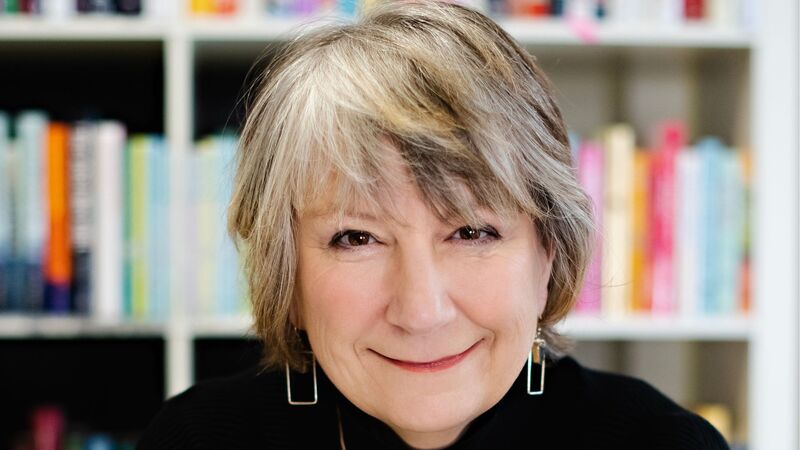You are viewing your 1 free article this month. Login to read more articles.
Desmond Elliott Prize winner Taneja calls for more bravery in publishing
Preti Taneja, whose Desmond Elliott Prize-winning book was "roundly rejected" by mainstream publishers on submission, has criticised large presses for a lack of bravery and vision and encouraged them to engage with BAME communities in order to stay relevant.
Taneja's prize-winning book, We That Are Young, a retelling of King Lear set in modern-day New Delhi, was turned down by mainstream publishers across London when it first went out on submission - a circumstance that "baffled" Norwich-based publisher Galley Beggar Press, which had expected a noisy bidding war for the "extraordinary" work before acquiring the rights to publish it. The novel went on to win the £10k Desmond Elliott Prize pot last week.
"Looking back, it’s clear mainstream publishers aren't always as brave or as visionary as one might think," Taneja told The Bookseller, reflecting on her journey. "I was very disappointed in them when We That Are Young first went on submission.
"When writers are told ‘This is brilliant – you’re very impressive and ambitious – but we didn’t fall in love with it,’ or, ‘The characters are unlikeable’ or ‘It’s too close to the bone’ or whatever – of course that is an editor’s taste, and their right. But what that says to the writer is – ‘We have a desire to curate culture in a particular way, and we will bend to that despite your brilliance or ambition.’ Alternatively, it says, ‘We have limited imaginations and resources and no faith in our own teams.’ Or worse: ‘We have no faith in review culture.’ Or worst: ‘We have no faith in readers.’ Either way, it’s not a good look."
Taneja said she didn't know what had been holding mainstream publishers back from publishing more BAME writers. "God knows," said Taneja. "But no one is buying the rationale that those books don’t get written, or that they ‘don’t sell’ any more.
"We all know that we suffer from the linked, deep-seated cancers of institutional racism and sexism and of class snobbery in the UK: call it unconscious bias, whatever you like, it’s there. Among other damages, those factors powerfully put women of colour and from certain backgrounds last in line when it comes to all sorts of things. Including being published, and then to achieving literary success. We write from trauma and from a place of love, through sexism and class bias in our own communities as well as in the mainstream. So we must be experimental and poetic, and radical and political, and sometimes we just want to have fun with language or plot, or write a porno or a crime novel.
"Sometimes rejections have very little to do with the quality of the work, and more to do with protecting a certain privilege. It’s a structural problem that goes way beyond publishing to an education system that doesn’t teach Empire history, a film industry that only supports certain narratives and so on, a society that values men’s minds over women’s and ‘white’ over ‘brown’ or ‘black’. Enough."
As well as advocating for unconscious bias training "for every colleague in the office, no matter how long they have been at the company" to address the issue, Taneja encouraged the industry to "read more widely" and the publication of more literature in translation.
She said she also believed investment in libraries and cultural centres inside and outside London, reforming the school English curriculum and opening access to 'elite' universities, making university tuition "fairer" and broadening the canon across subjects from history to literature would help promote diversity and inclusion in UK publishing.
Asked whether current schemes in the works, such as Penguin Random House's goal to be representative of UK society by 2025, were a sign of progress, she said she hoped so.
"We are a country of second generation, some of us third and fourth generation refugees and immigrants from 1947 onwards – and there are people of all races within that. Our children are growing up many colours, speaking many languages at home and with myriad cultural influences. They are readers and writers, librarians, teachers, publishers and editors in the making. Technology means that we will be more and more able to make the world for ourselves. We already are. If big publishing wants to stay relevant, I think it will have to speak with and to us," she said.
Over the last two years many mainsteam publishers including Penguin Random House UK, Hachette UK, HarperCollins and Faber have launched initaitives to try and improve the diversity of their staff and the authors they publish. Penguin Random House UK launched an "Inclusion Tracker" last year in pursuit of a new company-wide goal to bring the composition of its authors and staff into line with that of UK society by 2025, in terms of social mobility, ethnicity, gender, disability and sexuality. It has attracted support, but also criticism from authors such as Lionel Shriver who oppose quotas. A year earlier, it launched it WriteNow mentoring programme for writers "from under-represented communities" to help it to "seek out voices that speak to all of society", among a host of another initiatives.
Hachette UK founded its "Changing the Story" programme in spring 2016, involving a paid work experience scheme and 12-month annual internship programme for BAME students, funded "Insight into Publishing" places on Publishing MA courses outside of London for BAME students and launched Dialogue Books, an imprint dedicated to publishing writers from underrepresented backgrounds.
Taneja is being published as part of Others, a collection of writings celebrating "the power of words to show us the world as others see it", publishing with Unbound and raising funds for refugee and anti-hate charities. In the book, she will feature alongside other writers such as Louise Doughty, Matt Haig, AL Kennedy and recent Women's Prize for Fiction-winner Kamila Shamsie.












